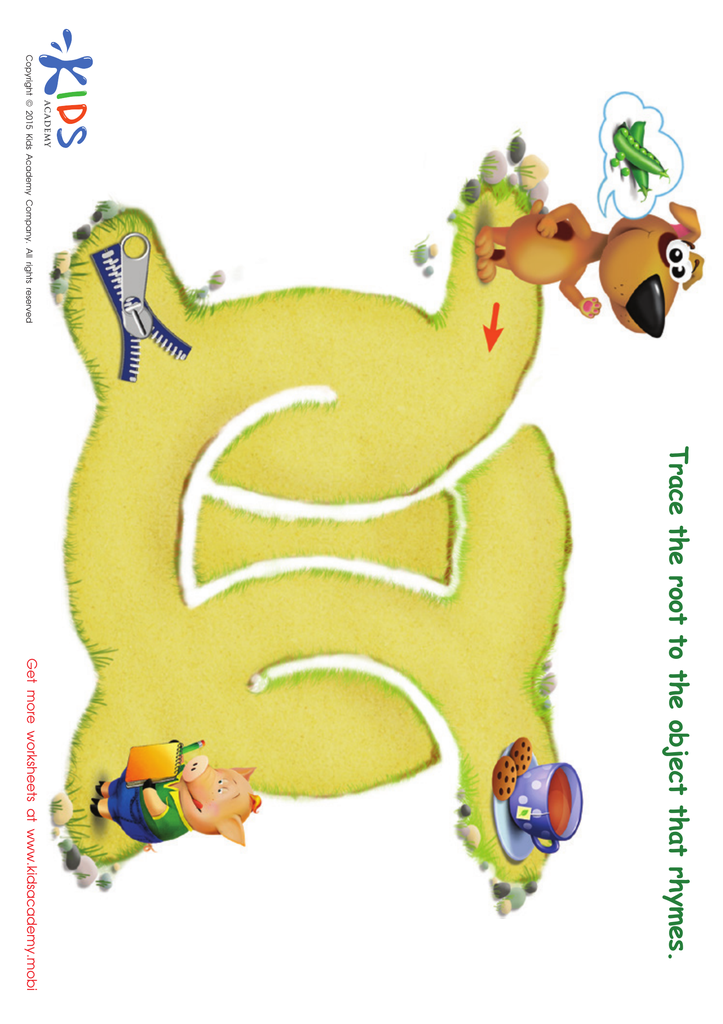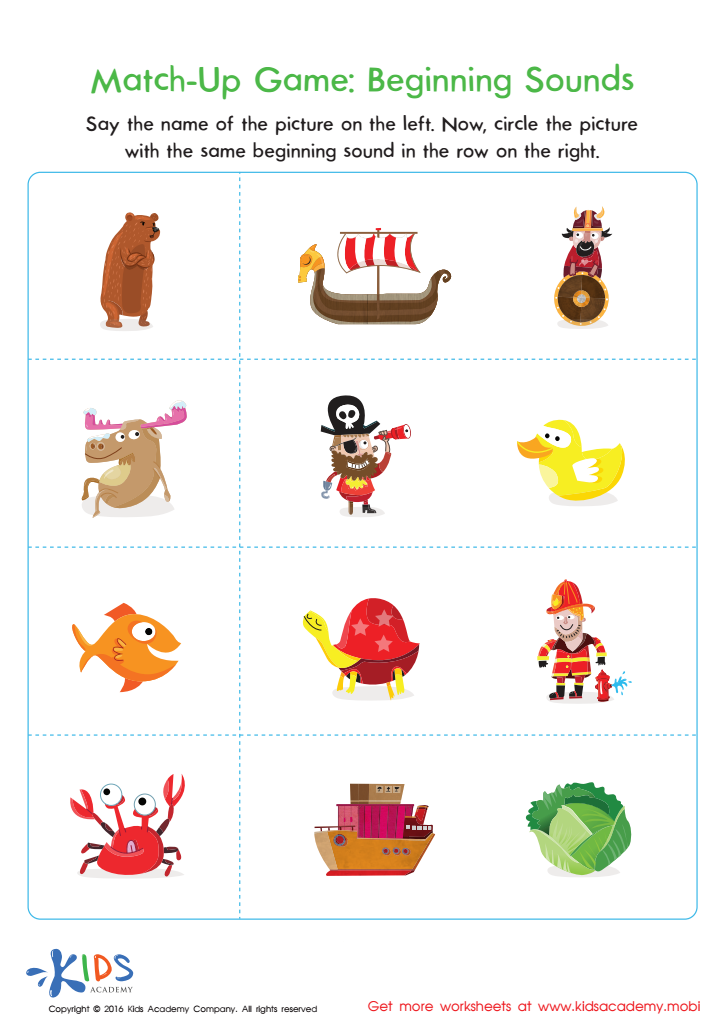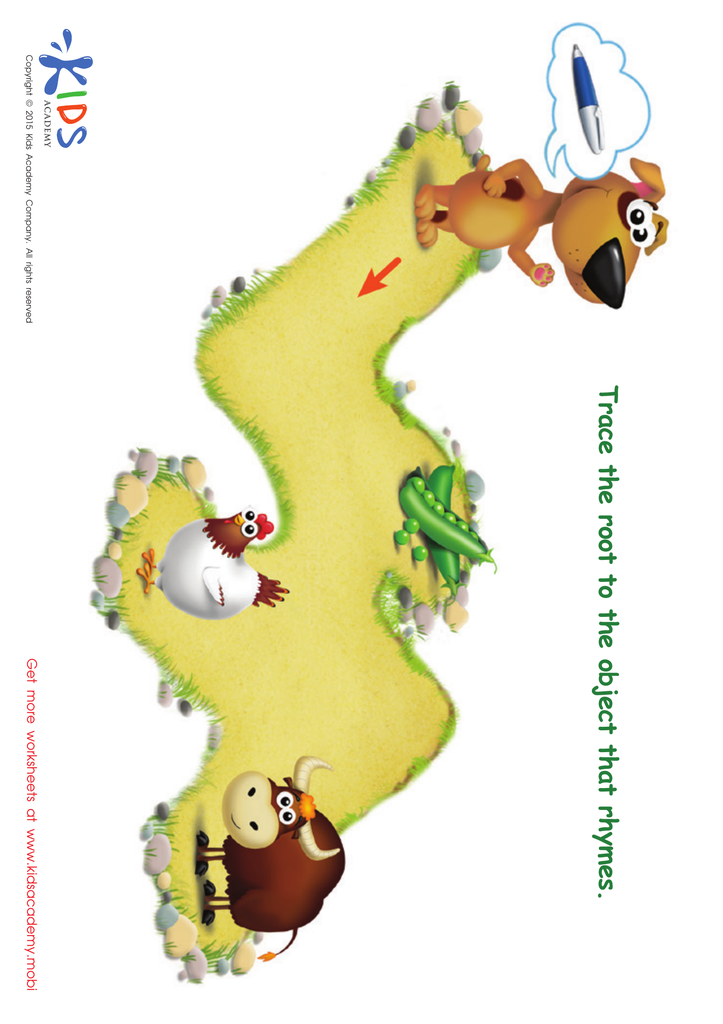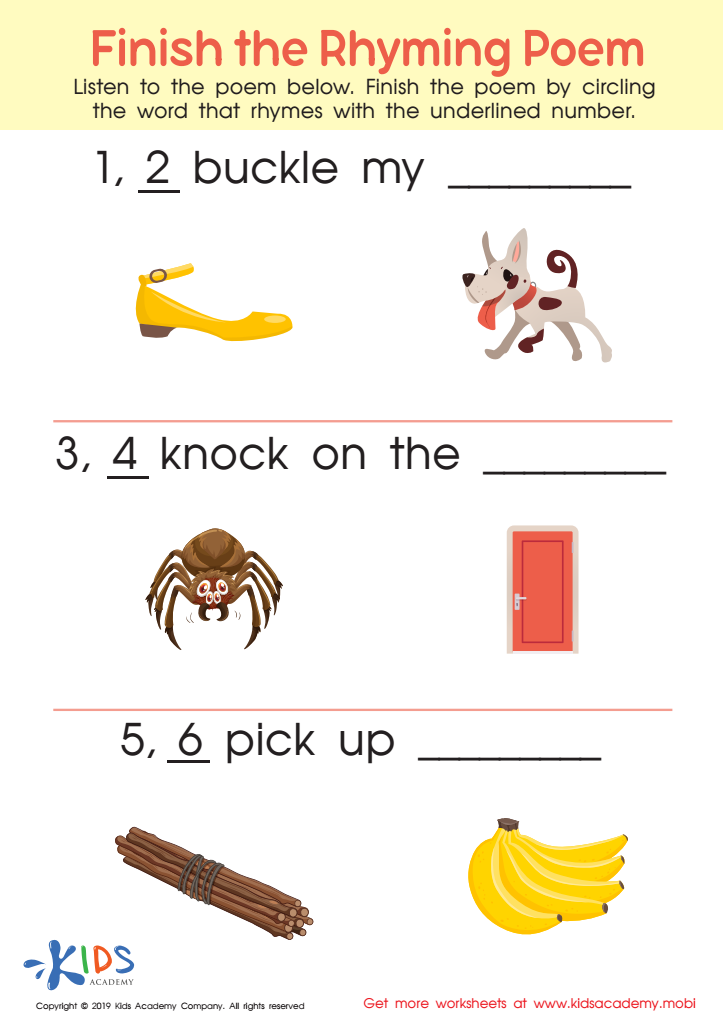Rhyming Words Worksheets for Ages 5-8 - Page 2
28 filtered results
-
From - To


Pea Rhyming Words Worksheet


Match–Up Game: Beginning Sounds Worksheet


Pen Rhyming Words Worksheet


Finish Rhyming Poem Worksheet
Rhyming words play a fundamental role in early childhood development, especially for children aged 5-8. Firstly, recognizing and producing rhymes help young learners develop phonemic awareness, an essential pre-reading skill. Phonemic awareness is the ability to hear, identify, and manipulate individual sounds in spoken words, which lays the groundwork for literacy. This auditory discrimination is crucial for decoding new words and spelling them correctly.
Secondly, rhyming activities foster a love for language and reading. When children engage in rhyming games, songs, and stories, they find reading enjoyable and are more likely to become avid readers. Rhymes add predictability and musicality to language, making it easier for children to remember new vocabulary and sentence structures.
Moreover, rhyming can strengthen cognitive development by enhancing memory, pattern recognition, and problem-solving skills. As children look for rhyming pairs, they must listen carefully, think critically, and often use their creativity to find matches, exercising their brains in a fun and engaging way.
Lastly, rhyming activities often encourage interaction and communication, whether through group reading, singing, or playing games. These social interactions enhance language skills, build confidence, and create a supportive learning environment. Encouraging the use of rhyming words is a valuable investment in a child’s early education, setting the stage for future academic success.

 Assign to My Students
Assign to My Students




















